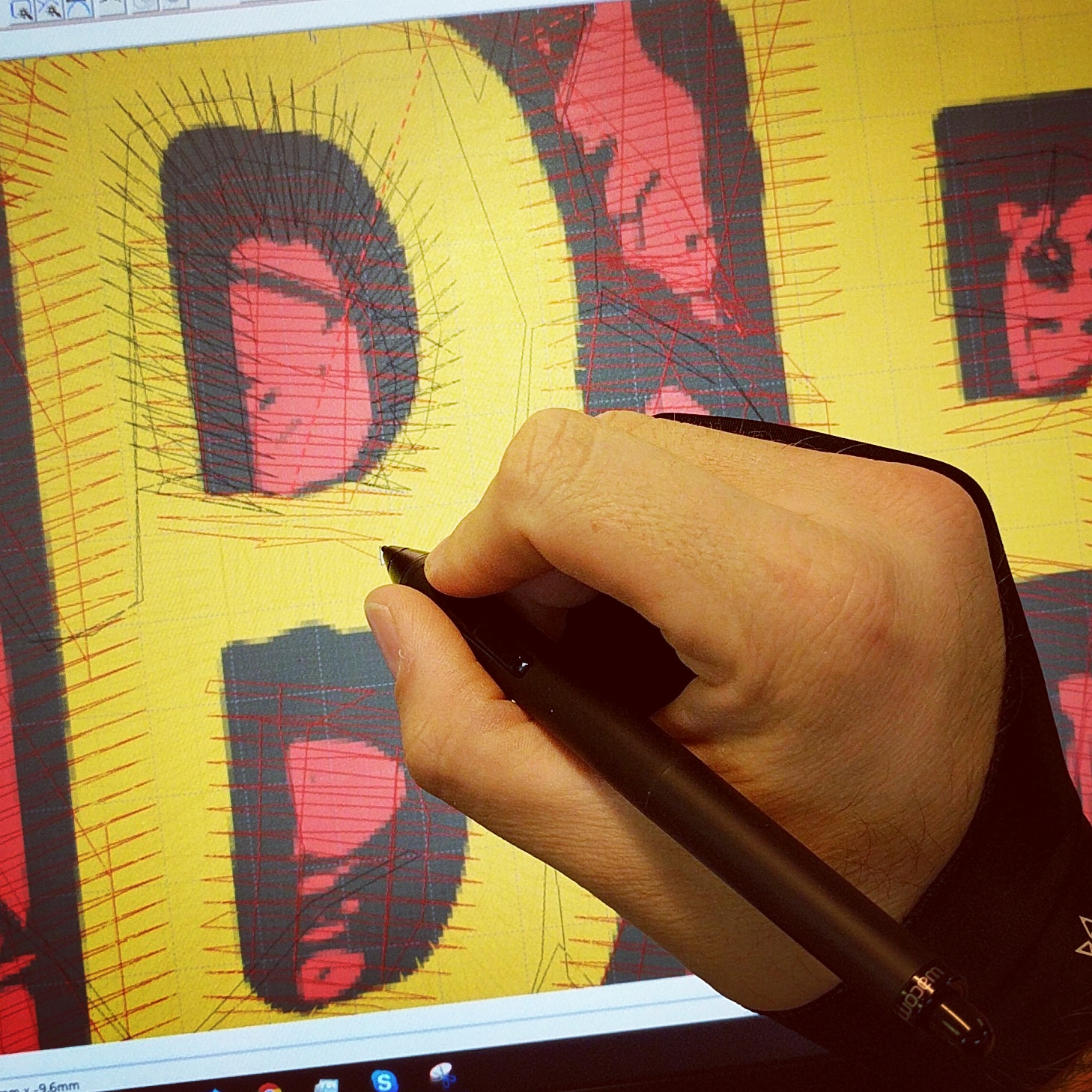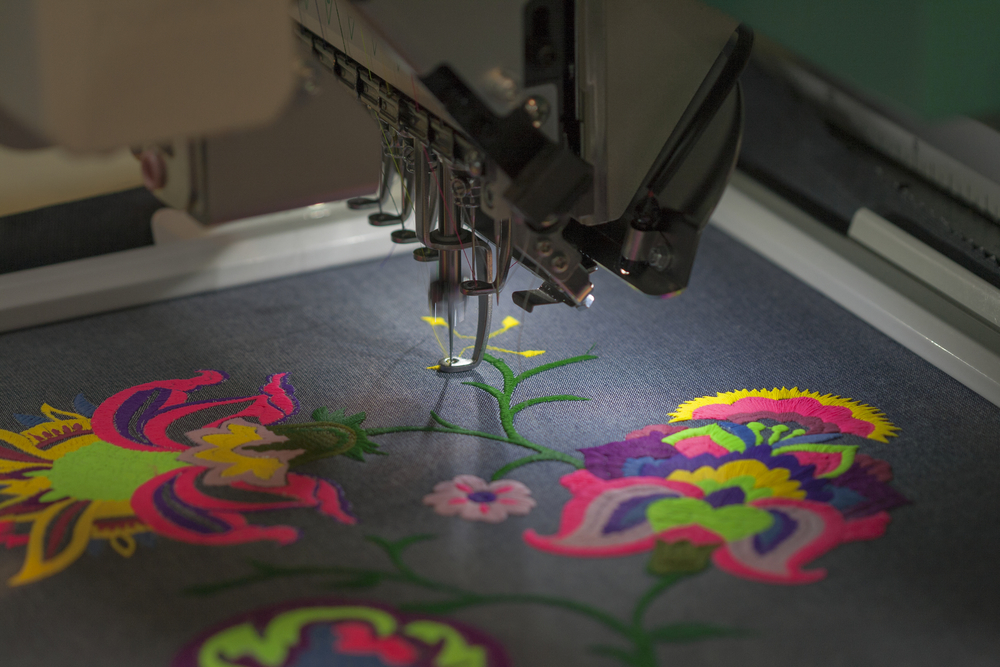Expert Digitizing for Embroidery: High-Quality Layouts
Expert Digitizing for Embroidery: High-Quality Layouts
Blog Article
Streamlining the Art of Needlework Digitizing: Step-by-Step Overview
Needlework digitizing is a thorough craft that demands accuracy and creative thinking. As modern technology remains to development, the digitization procedure has actually ended up being a lot more available, enabling fanatics to bring their detailed styles to life effortlessly. In this overview, we will certainly decipher the complexities of needlework digitizing, breaking down each action methodically to streamline the process and empower both novices and experienced embroiderers alike. Stay tuned to discover just how you can streamline this complex art type and transform your imaginative visions right into perfectly embroidered masterpieces.
Recognizing Embroidery Digitizing Software Program
Needlework digitizing software application offers as a critical tool for transforming detailed styles right into digital layouts suitable with embroidery equipments, facilitating precise sewing and modification. This specific software allows users to import different picture file layouts, such as JPG or PNG, and convert them into embroidery machine-readable formats like DST, EXP, or PES - Digitizing for Embroidery. By making use of functions like stitch editing, rug choices, and string color option, digitizing software application enables individuals to control every aspect of the design process
In addition, advanced needlework digitizing software program uses tools for developing complex styles, adjusting stitch thickness, and integrating intricate information. Customers can likewise sneak peek the design prior to sewing it out, ensuring accuracy and minimizing mistakes. Additionally, lots of software program programs provide automatic features that assist streamline the digitizing process, conserving time and initiative.
Understanding the capacities of embroidery digitizing software program is necessary for achieving top notch lead to needlework tasks. By mastering this device, embroidery enthusiasts and professionals can unleash their imagination and bring detailed designs to life with precision and performance.

Picking the Right Layout File
After familiarizing yourself with the abilities of embroidery digitizing software program, the following essential step in the procedure is picking the right layout file for your task. Digitizing for Embroidery. When choosing a style documents for embroidery digitizing, it's necessary to think about the intricacy of the design, the size of the last product, and the kind of textile you will certainly be collaborating with
For detailed designs with fine details, a high-resolution image or vector documents is recommended to guarantee that the needlework machine can accurately reproduce the layout. In addition, the size of the end product plays a substantial duty in picking the appropriate style file. Larger styles may need higher resolution documents to maintain clarity and intensity.
Moreover, the sort why not look here of textile you will certainly be embroidering on affects the selection of style file. Different textiles might need changes in the design documents to make sure that the stitches are correctly straightened and the design looks like planned. By very blog carefully picking the appropriate layout file based on these elements, you can set on your own up for an effective needlework digitizing process.
Digitizing Devices and Methods
Making use of specialized software and precision techniques, digitizing devices are vital in transforming elaborate styles right into embroidery-ready data. Embroidery digitizing software application, such as Wilcom, Hatch, or Embrilliance, provides the needed system to convert artwork into stitch data. These programs offer functions like stitch editing, padding options, and lettering tools to make certain the style translates effortlessly onto fabric.
Among the vital techniques in digitizing is producing a clear path for the needlework equipment to follow. This includes digitizing each aspect of the layout with precision, establishing stitch types, thickness, and instructions. By utilizing devices like digitizing tablets or software-specific plugins, embroiderers can accomplish a high degree of precision in their digitized designs.
In addition, understanding the art of padding stitching is essential for creating quality embroidery. Underlay sewing stabilizes the fabric and produces a structure for the layout, making sure that the final item is both aesthetically enticing and lasting. By comprehending these digitizing tools and methods, embroiderers can raise their craft and bring complex styles to life read the full info here with precision and performance.
Personalizing Stitch Kinds and Instructions
The selection of stitch types can considerably impact the total look and texture of the stitched layout. By strategically integrating these stitch kinds, embroiderers can attain deepness and dimension in their styles.
Furthermore, the instructions of stitches plays an essential function in boosting the visual charm of the last embroidery. By trying out with different stitch angles and patterns, embroiderers can bring their designs to life with impressive detail and intricacy.
Screening and Refining Your Digitized Layout
To guarantee the precision and high quality of your digitized layout, detailed screening and refinement are essential action in the needlework digitizing procedure. As soon as you have finished the digitization of your style, it is critical to check it prior to waging the real needlework. Evaluating enables you to recognize any type of possible issues such as string breaks, sew thickness issues, or layout distortions that may impact the final outcome.

After testing, it is crucial to fine-tune your digitized layout based upon the feedback from the examination sew-out. This might involve tweaking stitch settings, readjusting thickness, or making changes to the total design to achieve the wanted end result. By repeating through screening and refinement, you can fine-tune your digitized style to perfection prior to progressing with the real embroidery process.
Conclusion
In conclusion, understanding the art of needlework digitizing requires a detailed understanding of the software application, selecting the ideal style documents, utilizing digitizing tools and strategies, tailoring stitch types and instructions, and testing and fine-tuning the digitized layout. By following these actions, embroiderers can streamline the digitizing process and create high-grade embroidered styles with precision and efficiency.
Report this page